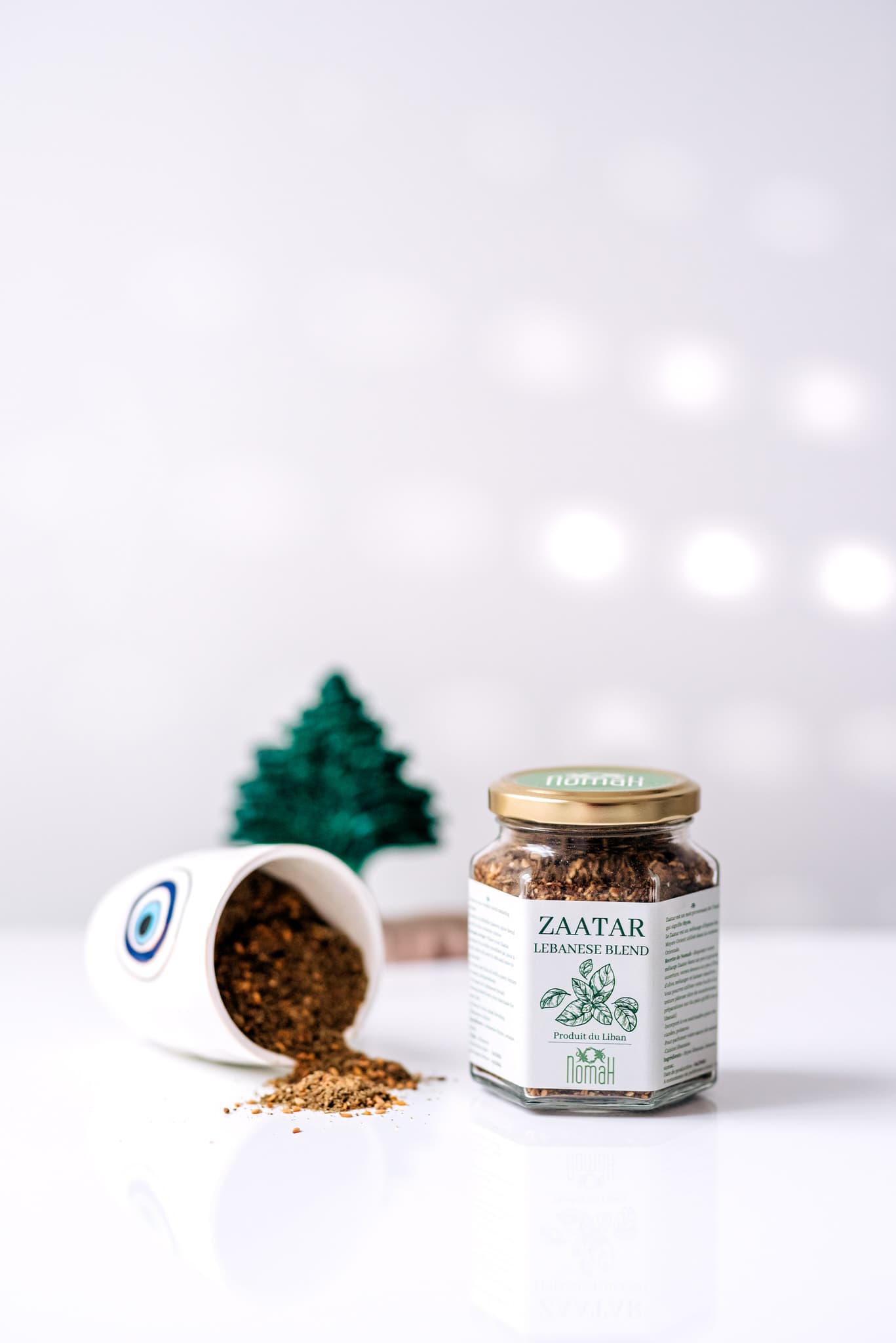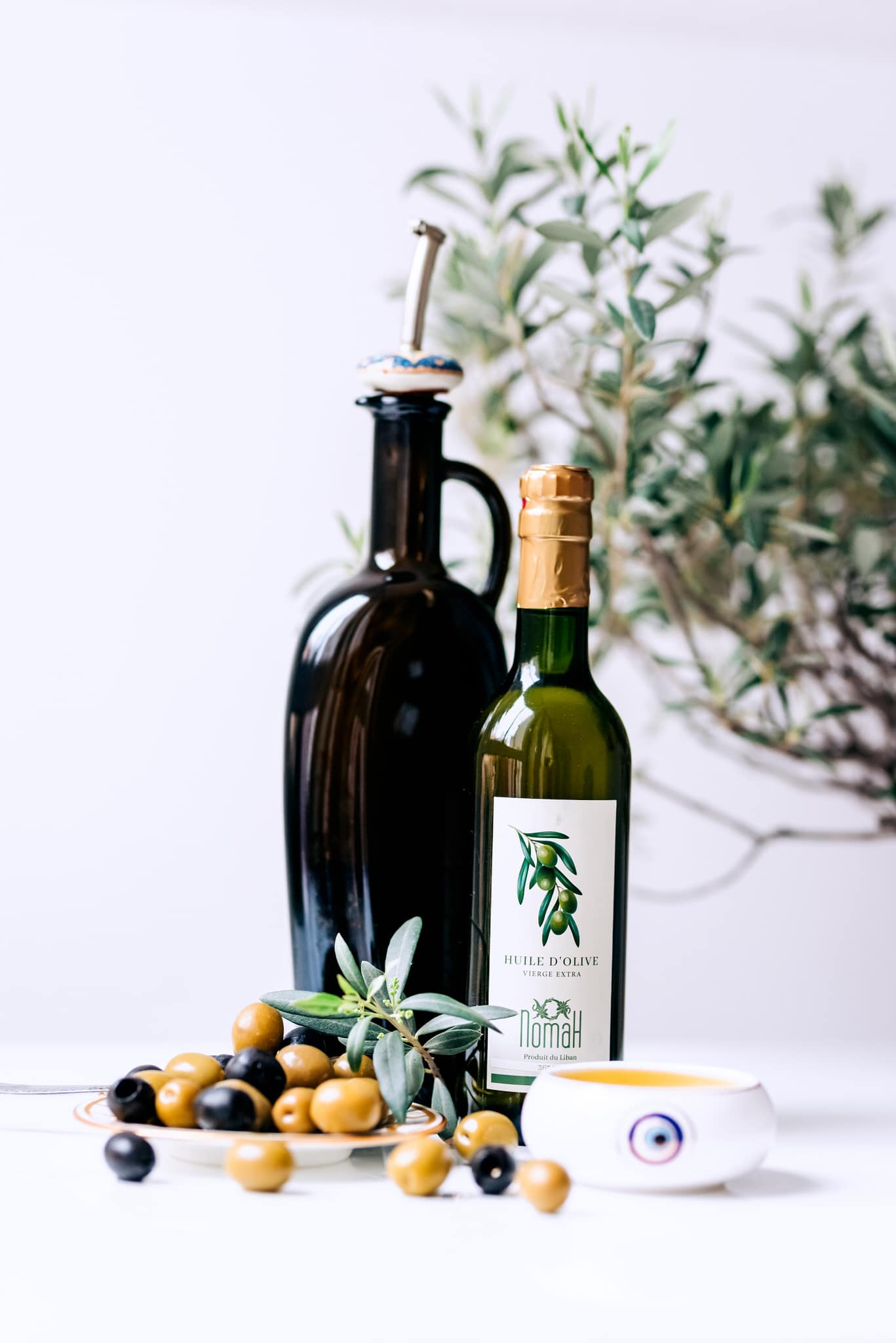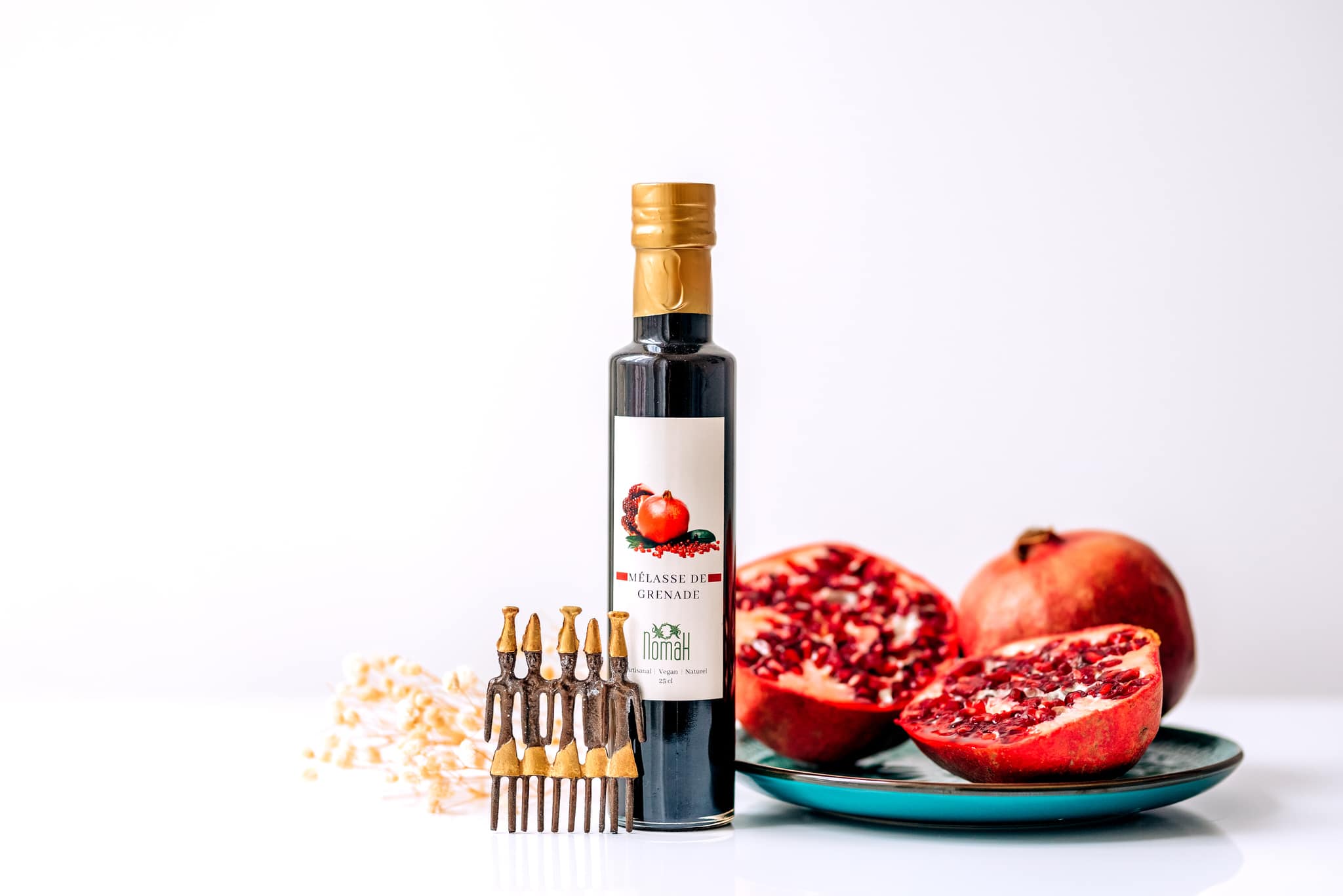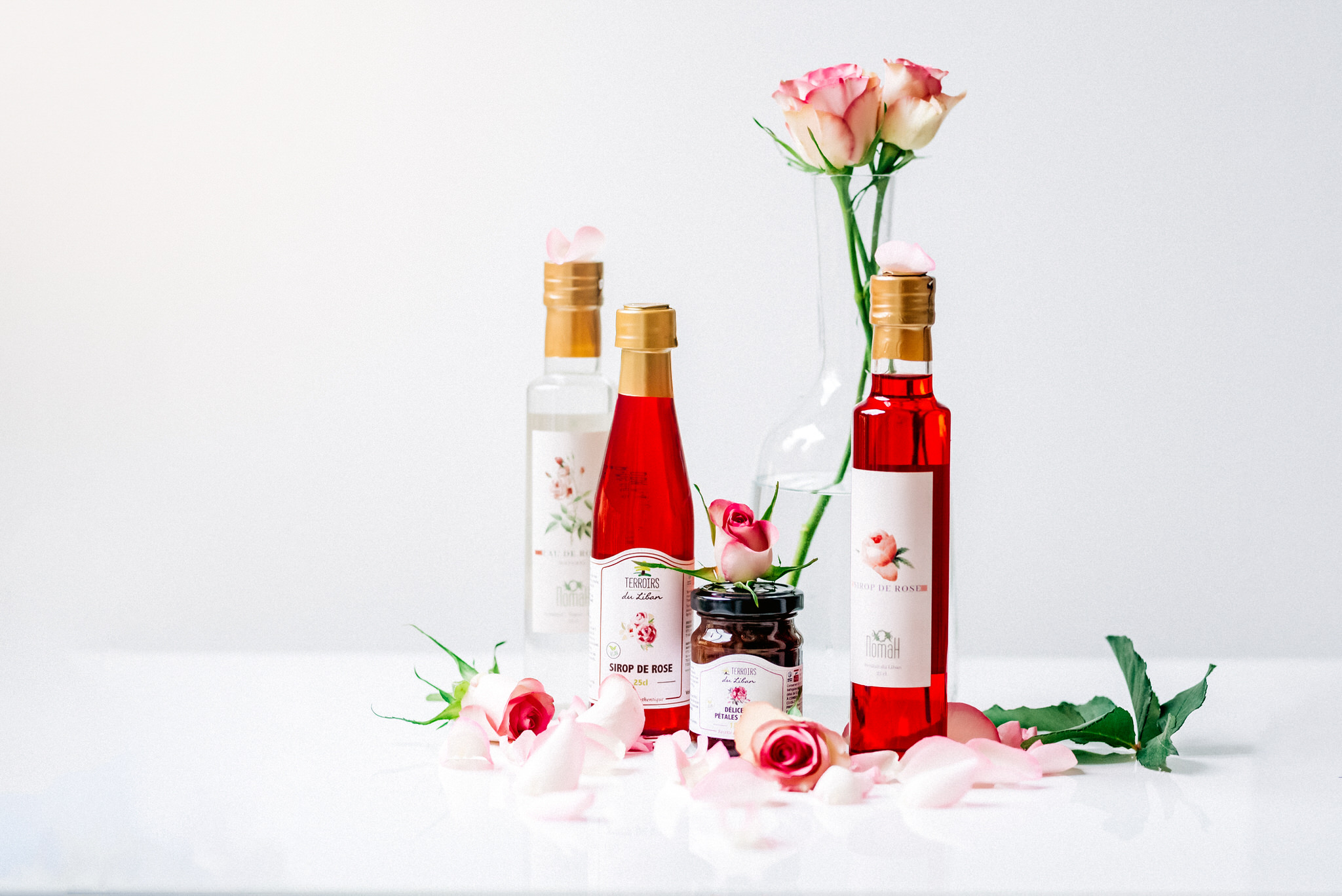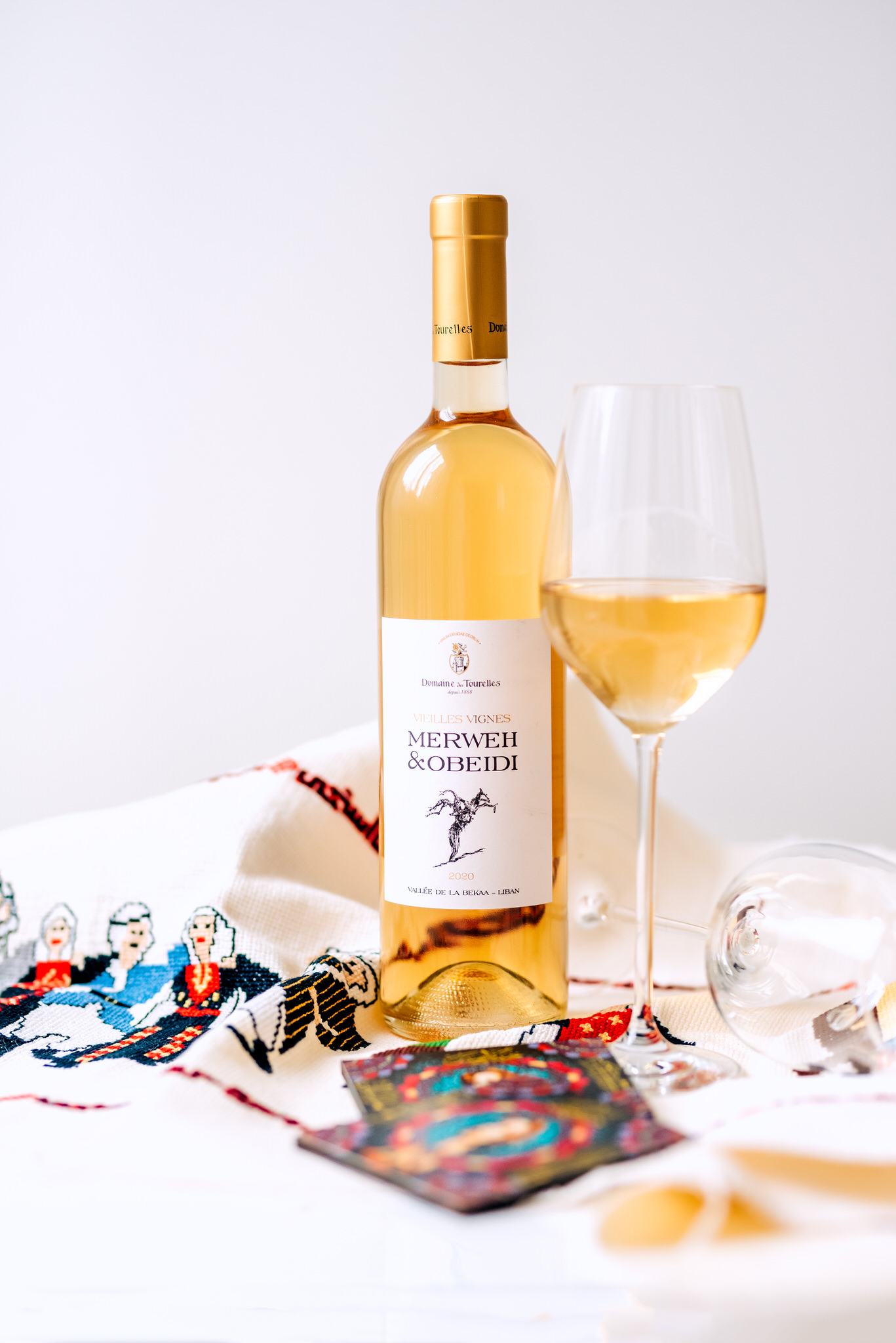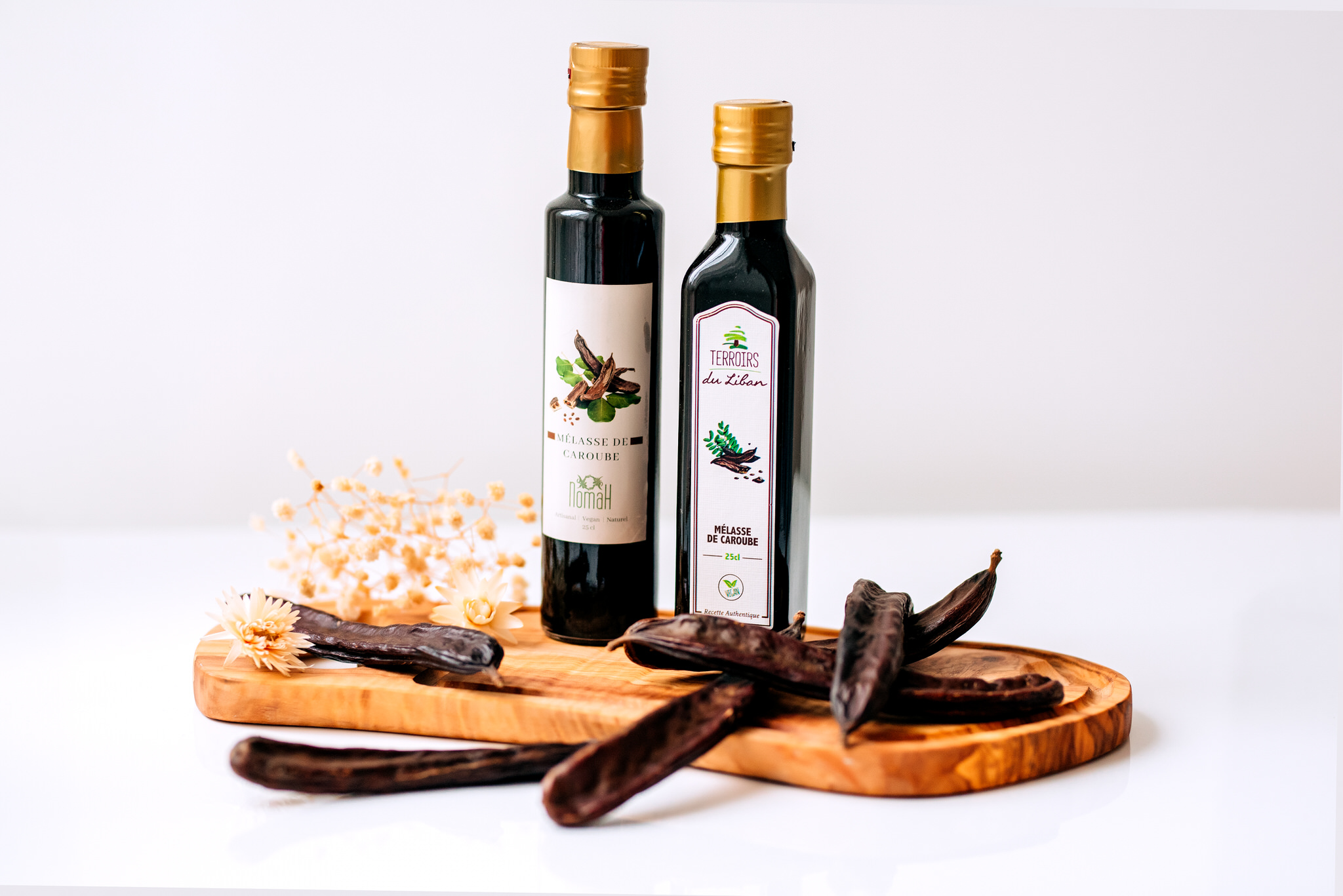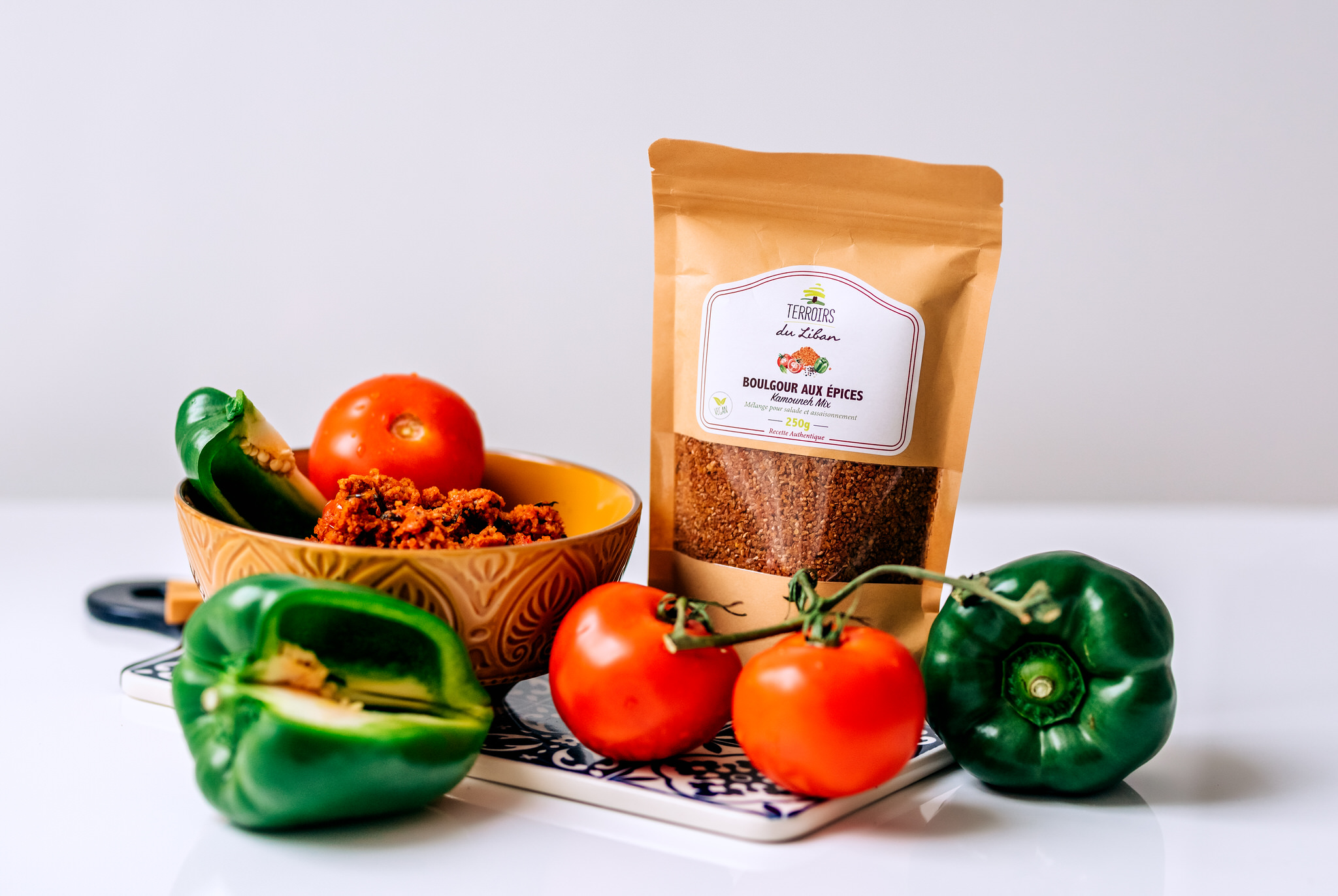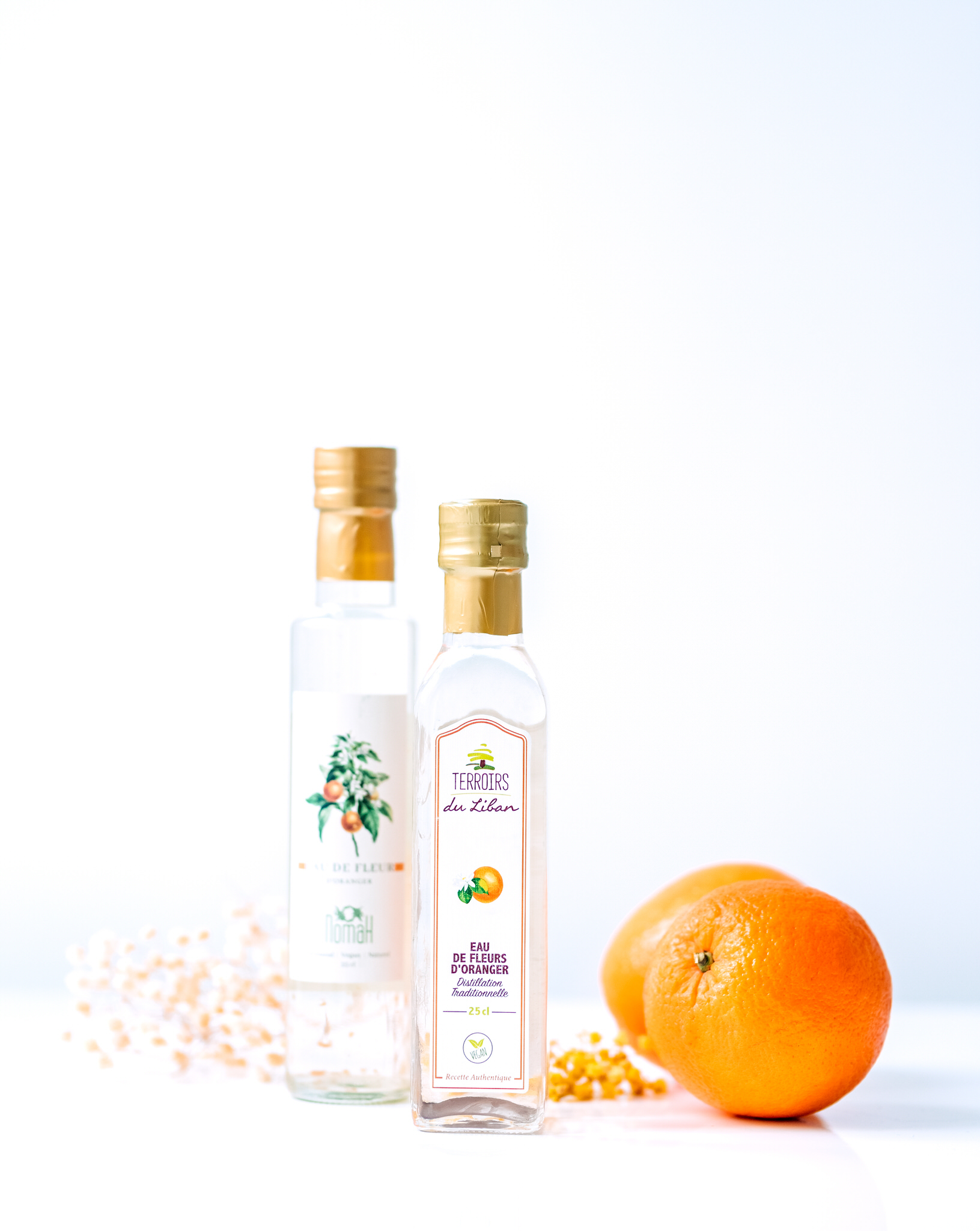In a forward-looking conversation, Zahraa K. Badawi shares her excitement about Urjouwan’s future impact on people’s appreciation for Levantine cuisine. “Beyond business, it’s a passion project to bring the unadulterated tastes of the Levant to Europe,” explains Zahraa.
Urjouwan, named after the ancient Phoenician dye “Urjouwan” that adorned the Mediterranean coasts, embodies the spirit of Lebanon’s rich cultural heritage. Fabl’style speaks with Zahraa, the brand’s founder, about the brand’s vision, devotion to authenticity, and the empowering stories behind its curated assortment.

The Tyrian Purple Legacy
FAB: The name “Urjouwan” holds significant historical and cultural meaning. How does the legacy of “Tyrian Purple” inspire the essence of your brand, and how does it reflect in the products you offer?
Zahraa: When the idea of starting my own business popped up in my head, two things that I didn’t have to think much about were the brand’s name and the type of products it would offer. As a kid, and up until I moved to Europe in my early 20s, I spent countless summer days on the Mediterranean seashores in my hometown, Tyre, on those very same shores where the Phoenicians discovered the “Urjouwan” purple dye and started exporting it elsewhere.
Phoenicians were also among the first to produce wine, and no wonder we have some of the world’s best wines in Lebanon. Based in the heart of Europe, in the world’s most liveable city, our company Urjouwan seeks to follow in the footsteps of our Phoenician ancestors by importing a carefully selected variety of Lebanese products meeting the highest quality standards, with hopes that these precious staples in Levantine and Mediterranean cuisine spread to the rest of Europe and the world in an attempt to preserve and promote the Levant’s rich culinary heritage. Just like the Tyrian purple colour would hardly fade, the aromas and flavours of the products offered by Urjouwan are made to last.
- Credit: Romana Maalouf Photography
- Credit: Romana Maalouf Photography
- Credit: Romana Maalouf Photography
- Credit: Romana Maalouf Photography
A Glimpse into Selection and Sourcing
FAB: How do you source and select the products that become part of Urjouwan’s curated collection? Are there specific criteria or stories behind these choices?
Zahraa: Many criteria are usually involved in the process before deciding on which products to add to Urjouwan’s collection; this includes sustainability, fair trade, eco-friendliness, and harvesting and production methods, among other factors, all of which serve to determine the quality of the product. We are talking about hand-picked olives and grapes, handmade jams, syrups, and distillates, stone-ground sesame seeds yielding the nuttiest Tahini, and so on.
But that’s not all; equally important to me are the people behind these businesses, their stories, and their vision. As such, we strive to partner with cooperatives, small families, and women-owned businesses that work tirelessly to ensure the highest quality and ethical standards. Of course, regular market research is key in order to identify emerging businesses and trends that are aligned with one’s business model and vision.
Then, I would immediately initiate contact with these businesses and discuss the particulars from A to Z in an attempt to learn more about their products, but even more so about the values and principles these businesses stand for.
The next step would be scheduling company visits in Lebanon for sample tastings and face-to-face encounters, after which it would be decided which brands are Urjouwan’s next partners and which products would be added to its collection.
- Credit: Romana Maalouf Photography
- Credit: Romana Maalouf Photography
- Credit: Romana Maalouf Photography
- Credit: Romana Maalouf Photography
- Credit: Romana Maalouf Photography
FAB: Your mission is not only to provide authentic Levantine products but also to empower local and refugee producers, particularly women in Lebanon. Could you tell us more about the impact you hope to achieve through this initiative?
Zahraa: I am a woman who was lucky enough to be born in a conservative-yet-liberal house to parents and siblings who made their daughter’s/sister’s education, freedom of thought and choice, and independence a priority and who empowered me in every way. I was born to practicing, moderate Muslim parents who always taught us to respect people from all ethnic, religious, and other backgrounds, and enrolling my siblings and me in a secular school with people of different faiths and nationalities naturally reinforced these values. To me, showcasing products made by various communities spread across different regions in Lebanon is one way of reflecting the diversity and co-existence that are part and parcel of the social fabric in the country.
I am also very much aware of the fact that no one chooses to be a refugee, for there is no greater connection between a land and its people. People are often forced to flee, if not for their own lives, then for their children’s, and this harrowing journey comes with immense hardship. My maternal grandparents were forcibly displaced when they were expelled out of their village “Hunin” in South Lebanon in 1948, where settlements were established, currently known as Kibbutz Misgav Am and Moshav Margaliot, and then again they sought refuge in Germany in 1977 following the Lebanese Civil War.
With this background informing my worldview, I firmly believe in being empathetic towards people, trying to understand their lived experiences, and giving them opportunities to overcome. In a world still dominated to a great extent by patriarchy, racism, selfishness, and competitiveness, acknowledging each other’s struggles, respecting each other’s differences, and empowering one another, especially us women, is key to overcoming the limitations our societies or circumstances impose on us.
And as a woman coming from a region often misunderstood and misrepresented through countless stereotypes, I hope to show through Urjouwan what women in general, and more particularly women from the MENA region, are capable of, to uproot many preconceived notions and prove that we could be several things at the same time; we do not have to be either or; we do not have to conform to any given label.
FAB: Can you tell us about a product or recipe in your collection that has particularly resonated with your customers?
Zahraa: It is quite a tough choice, to be honest, as several products and recipes have resonated very well with customers. The Zaatar-Olive Oil mix is certainly a hit, and there is also the Tahini-Carob Molasses combo, which is at once sweet and savoury and has been impressing many, especially people hearing of carob molasses and trying these 2 ingredients together for the first time. And then there is my homemade (vegan) Baqlawa infused with orange blossom and rose water drops, which I offer from time to time whenever Urjouwan is present at Karmelitermarkt in Vienna’s 2nd district on Saturday mornings.
Urjouwan’s Culinary Response to Changing Diets
FAB: With increasing health consciousness, there’s a growing interest in exploring diverse and nutritious cuisines. How does Urjouwan’s range of products cater to these changing dietary preferences and health-focused lifestyles? There’s also been a growing interest in plant-based and vegetarian/vegan diets. Does Urjouwan offer products or cater to this audience? If so, could you tell us about them?
All products offered by Urjouwan are free of preservatives, are mostly handmade, meet the highest quality standards, and follow traditional recipes and techniques passed on from one generation to another over centuries, all of which greatly accentuate the aromas and tastes. Levantine cuisine is incredibly diverse and inclusive in a way that can cater to any diet or lifestyle, offering a wide array of meaty, vegetarian, and vegan appetisers and dishes.
Having a heavily diverse cuisine, much of which is plant-based, means having countless ingredients/products that are naturally vegan and packed with health benefits. Freekeh, for instance, which is roasted green wheat, is a versatile ingredient with a beautifully smoky flavour, low-GI, high protein content, vitamins, minerals, and fibre, and it contains less fat compared to other grains.
Kamouneh is a traditional recipe from South Lebanon, basically a mix of fine bulgur, spices (cumin, rose, scented geranium, chilli, cinnamon, cloves, marjoram, mint, and pepper), and dried mint. Combined with onions, olive oil, tomato paste, fresh tomatoes, and mint leaves, Kamouneh becomes an imaginative starter with pronounced savoury and earthy flavours and exquisite aromas. Carob molasses presents a gluten-free sugar alternative that is naturally high in fibre and caffeine-free, rich in antioxidants, reduces cholesterol, helps fight diabetes, has anti-cancer properties, and is good for lung, liver, and intestinal disorders, gastritis, and high blood pressure. It also reduces the effects of ageing on the skin and provides a healthy glow.
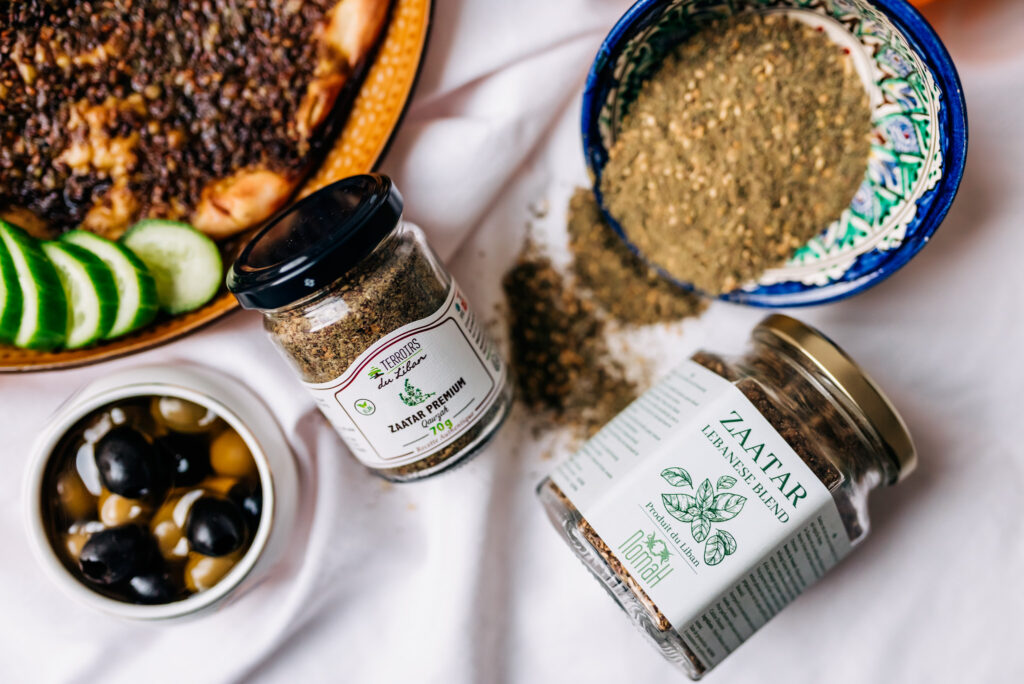
FAB: As a founder with a deep connection to both Lebanon and Austria, what have been the most rewarding moments for you in building Urjouwan and bridging these two cultures?
Zahraa: For me, Urjouwan is about holding on to my roots while connecting with my present, about following in the footsteps of my ancestors and bringing people together through simple shared experiences, about showcasing the warmth of my people to the people who welcomed me into their society.
Throughout the process of building Urjouwan, I have been delving deeper into the Lebanese cuisine and terroir, reminiscing about big segments of my childhood as a young girl who was very much in touch with nature in the orchards of South Lebanon.
When I first moved to Austria in September 2015, I made sure I stocked up on my family’s olive oil, my mom’s Zaatar mix and roasted sesame seeds, her best friend’s homemade pomegranate molasses, my sister’s Makdous (stuffed eggplants), and our neighbour’s tomato paste, among other staples. Running out of supplies prompted endless desperate requests to find someone travelling between Beirut and Vienna who could replenish my pantry shelves. What started out as an attempt at self-sufficiency eventually turned into a culinary/cultural project bridging the two nations. Through Urjouwan, I rediscovered a lost connection with the home of my birth, in the land that I call home today.
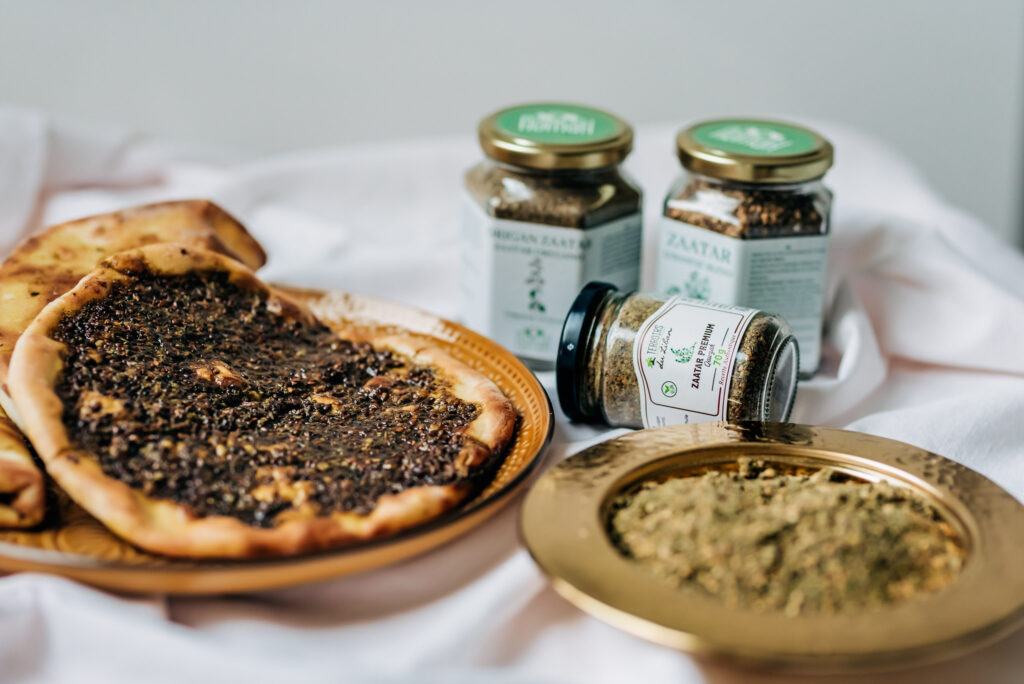
The Future of Urjouwan
FAB: As you look ahead, what excites you most about the future of Urjouwan and the impact it can have on people’s appreciation for Levantine cuisine?
Zahraa: I started Urjouwan not just as a business but also as a passion project aiming to bridge my two homes, using the tapestry of food and flavour. The Levant is home to many culinary classics, and I aspire to bring these products to Europe in their best and most authentic form.
Levantine food is not new to Europe, but it is unfortunately mostly available in a fairly commercialised and diluted form, one that hints at the exquisite tastes, textures, and smells of the Levantine kitchen but does not do them justice.
With Urjouwan, I hope to do justice to these culinary gems and introduce people to them as they are meant to be experienced, all while supporting SMEs and empowering women in Lebanon. In short, I aim to honour and represent my heritage, support those who preserve it, and connect them with those who can truly appreciate it, while enriching the lives of both.
Contact:
Mobile: +43 670 650 450 9
Email: [email protected]
Website: www.urjouwan.com
Social (Instagram, Facebook & Pinterest): @urjouwanboutique
Bio Link: https://linktr.ee/urjouwan
More Like This:
The Undeniable Influence of Drag Queen Culture






